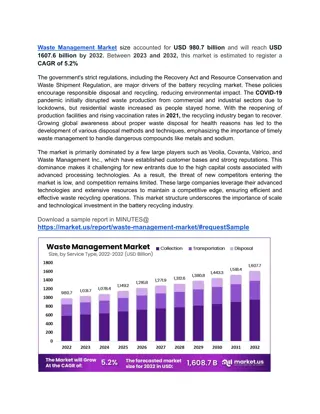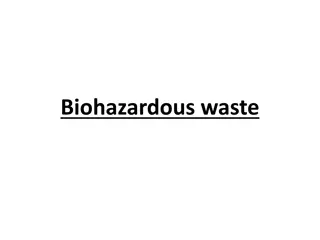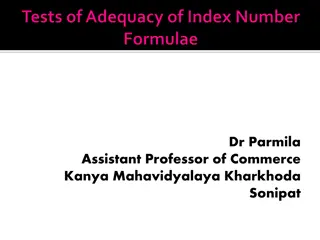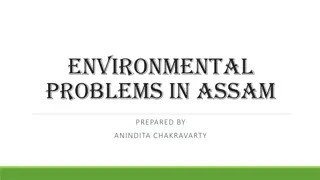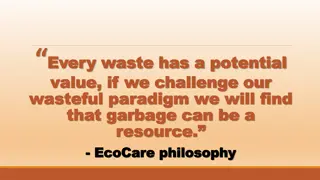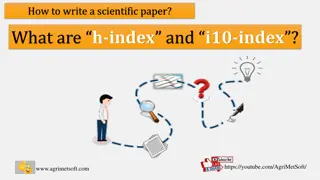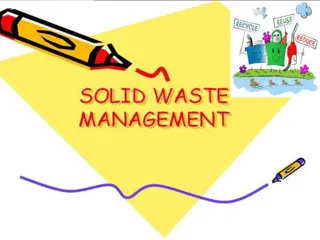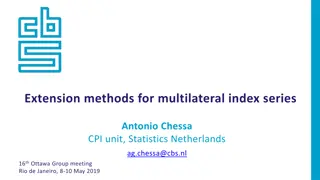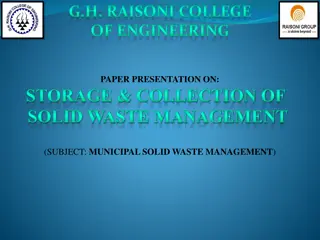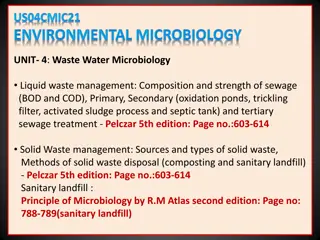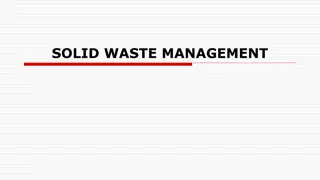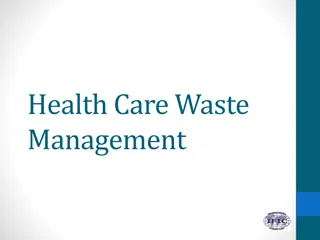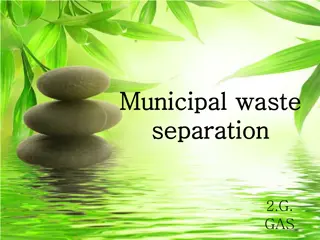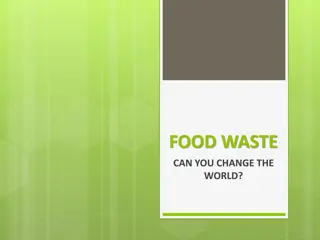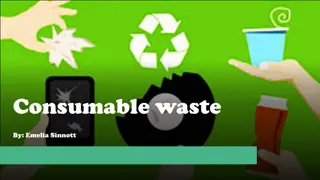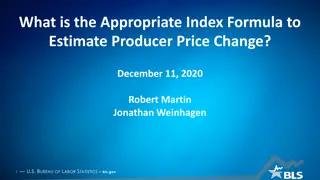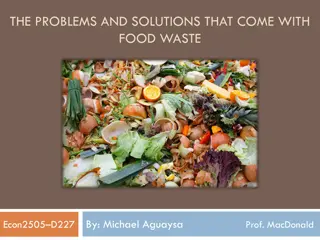Understanding the 2021 Food Waste Index Report
The UNEP Food Waste Index Report, part of the Sustainable Food Systems Programme, emphasizes the importance of reducing food waste for various benefits like food security, climate change mitigation, and resource conservation. The report highlights the need for better data collection and measurement approaches globally to address food waste effectively.
Download Presentation

Please find below an Image/Link to download the presentation.
The content on the website is provided AS IS for your information and personal use only. It may not be sold, licensed, or shared on other websites without obtaining consent from the author. Download presentation by click this link. If you encounter any issues during the download, it is possible that the publisher has removed the file from their server.
E N D
Presentation Transcript
FOOD WASTE INDEX REPORT 2021
The UNEP Food Waste Index Report was developed in the context of the One Planet Network s Sustainable Food Systems Programme, whose Core Initiative on Food Loss and Waste aims to provide tools and build capacity for food waste measurement and action at national level. INTRODUCTION
Food waste reduction offers multi-faceted wins for people and planet, improving food security, addressing climate change, saving money and reducing pressures on land, water, biodiversity and waste management systems. Yet this potential has until now been woefully under-exploited. FOOD WASTE REDUCTION WHY NECESSARY
FOOD WASTE MEASUREMENT APPROACH
Global food waste data availability is currently low, and measurement approaches have been highly variable. There is an uneven distribution of data between regions as well as country income groups. STEP 1. NUMBER OF COUNTRIES WITH MEASURED DATA POINTS, BY SECTOR AND WORLD BANK INCOME CLASSIFICATION
Average food waste (kg/capita/year) by World Bank income classification, averaging medium and high confidence estimates for countries STEP 1. FOOD WASTE ESTIMATES BY COUNTRY INCOME LEVEL
STEP 1. GLOBAL ESTIMATES (BY SECTOR) Households 61% Food service 26% Retail 13%
STEP 2. APPROPRIATE METHODS OF MEASUREMENT FOR DIFFERENT SECTORS
Food waste data in relation to SDG 12.3 will be collected using the United Nations Statistics Division (UNSD) / UNEP Questionnaire on Environment Statistics (Waste Section). The questionnaire is sent out every two years to National Statistical Offices and Ministries of Environment, which will nominate a single food waste focal point in the country to coordinate data collection and reporting. HOW TO REPORT ON SDG 12.3
Food waste is a waste of resources, time and money. Food waste means all of the environmental impacts of food production without any of the benefits of people being fed. The Food Waste Index Report provides strong evidence that makes the case for action globally. Measurement of food waste at retail, food service and household level using the framework and methods established in this report will strengthen estimates in most countries, informing the development of national food waste prevention strategies. DISCUSSION AND RECOMMENDATIONS
There is growing evidence of success in reducing food waste though not at the scale needed to achieve the target. Much more can be done. We need to address the role of consumer behaviour, in all cultural contexts, in achieving the target. Let us all shop carefully, cook creatively and make wasting food anywhere socially unacceptable while we strive to provide healthy, sustainable diets to all. CONCLUSION
Source: Ministry of Agriculture, Forestry and Fisheries of Japan website. [Electronic resource]. URL: https://www.maff.g o.jp/e/ EXAMPLE OF JAPAN
THANK YOU FOR YOUR ATTENTION DARIA TIMOKHINA LM-52, INTERNATIONAL RELATIONS IN THE DIGITAL ERA

 undefined
undefined










